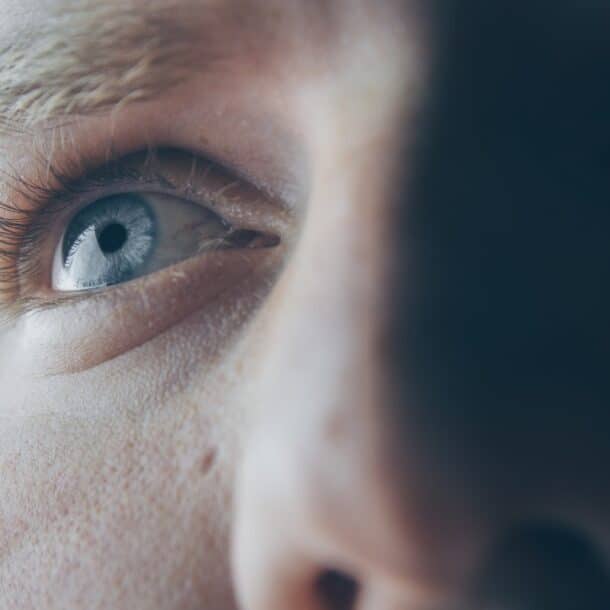
Animal-Assisted Therapy in Colorado: What You Can Learn From Animals
When considering treatment for substance use disorder (SUD), it is important to consider which options resonate best with you. While strategies like group therapy can aid those in recovery, there are still many different approaches available.
At Healing Pines Recovery, we offer both conventional and holistic programs that promote healing and well-being. One of the holistic treatment methods we provide is animal-assisted therapy (AAT). This gives you a chance to work with and learn from animals. A significant part of this therapy method is equine therapy, which allows you to interact with horses alongside the guidance of a professional equine therapist. Working with animals and horses provides you with many key skills that you can later apply to yourself and your relationships.
What Is Animal-Assisted Therapy?
Animal-assisted therapy is a type of treatment that uses animals as therapeutic modalities. The goal of AAT is to help you relearn, improve, or obtain key skills needed to live a healthy and well-adjusted lifestyle. While animal-assisted therapy is not a new method of treatment, it has become quite popular. Being located in Colorado, Healing Pines Recovery seeks to use this to your full advantage.
Animal-assisted therapy can help to minimize feelings of anxiety, loneliness, boredom, and isolation, which can be incredibly beneficial when working through SUD. This can be a crucial key to recovery because often, SUD brings about loneliness and isolation.
What Is Equine Therapy and How Does It Contribute to Recovery?
While Healing Pines Recovery offers general animal-assisted therapy, we also offer the option of equine therapy. Equine therapy falls under the category of AAT, but more specifically with horses. This type of therapy is facilitated by a professional equine therapist. Building a connection with horses can be a great way to build up essential skills, as they are highly in tune with emotions. You will need to develop a bond of trust with them over time in comparison to other animals.
There are many ways horses can help with addiction and recovery. Some of these include:
- Body language: Horses can pick up subtle clues and mirror your internal behavior back to you. This lets them know if you are a “potential herd member” or a threat. It also teaches you to control your body language and be highly aware of your actions and emotions.
- Learning healthy boundaries: Horses are very in tune with their environments, and it can take time to build trust with them. This means you must be respectful of their boundaries and learn to keep your own. There is a big difference between aggression and assertiveness, which is something that horses can teach you.
- Response, not reaction: With horses being sentient beings, they are always aware of what is going on and, depending on the situation, react to their surroundings. Learning to respond to these things versus reacting is key. This can help you learn to be aware of situations and respond properly while making conscious decisions.
What Animals Can Teach Those in Recovery
There are many things you can learn from animals, many of which can be applied to recovery. When working through active addiction, you can lose sight of some critical skills, and it can be hard to relearn them. With the help of animals, you can start to slowly build those skills back.
For example, self-care is something that can be neglected when struggling with SUD. Animals, on the other hand, need daily care, such as cleaning, exercise, and maintaining a healthy diet. These are all things that you might have lost sight of when addiction took over your life. This is not the only skill to learn from animals, though. Other key skills can include things like:
- Building deeper connections and relationships: In recovery, it can feel like relationship-building is hard or that relationships are overall unmanageable. At times, you may not even know where to begin. Learning to build trust is a great starting point, and with animal-assisted therapy, it is a must.
- Gaining confidence: When working with animals, such as horses, you must learn to have confidence when handling them. Animals have a greater sense of awareness than humans, meaning emotions and hesitation can affect them.
- Learning accountability and responsibility: Since animals are conscious living beings that rely on humans for care, it provides you with a sense of accountability and responsibility that carries into daily life.
- Having self-control: Building trust with an animal takes time and cannot be rushed, which teaches self-control and patience. Something you may struggle with while in recovery is the need for instant gratification. When you cannot get that, you might lose control and make rushed decisions. Working with animals retrains the brain to be patient and think things through before taking action.
There are still many other benefits that animal-assisted therapy can provide. While this is not a traditional therapy that you may see at other treatment centers, Healing Pines Recovery is breaking those walls down. We can provide you with the opportunities to explore new methods of treatment that can help in reaching long-term success with recovery.
There are a number of things we can learn from animals. Providing care for yourself is something that typically comes easily; however, practicing simple self-care tasks can seem impossible in recovery. At Healing Pines Recovery, we offer patients the opportunity to work with animals and horses directly.
Animal-assisted therapy can be beneficial to one’s recovery progress, yet it is not a commonly offered treatment method at other facilities. Through animal-assisted therapy, you can relearn vital skills — such as accountability, responsibility, and confidence — that you can later apply to relationships with yourself and others. Caring for animals provides a fun and calming environment with tremendous healing properties.
If animal-assisted therapy is something you might enjoy and you identify as male, please do not hesitate to reach out to Healing Pines Recovery today. You can reach us at (720) 575-2621.
Paul Leafstedt
Paul was born and raised in the beautiful state of Colorado. He went to college in California at CAL Poly Pomona, majoring in Mechanical Engineering. Being a person in recovery and always finding fulfillment in helping others succeed, Paul co-founded a treatment center in California with 4 other partners. Paul came back to Colorado to continue his journey in the field of addiction, and to share his vision for Healing Pines Recovery. “Colorado is such a magical place for me, its natural beauty and peace lend itself for the perfect environment to connect with yourself and others. Healing Pines is different, it’s real, you can feel it. What you see is what you get here. This is a safe place to dig deep and be vulnerable, to re-discover yourself, what the world has to offer and what you have to offer the world.”Begin Your Journey & Escape Addiction
The first step can be the hardest. Fill out the form or call us at (720) 575-2621. You will be connected with a Healing Pines Recovery specialist who can answer your questions and help you get started.
Let Us Help You
Speak to Someone Right Now







